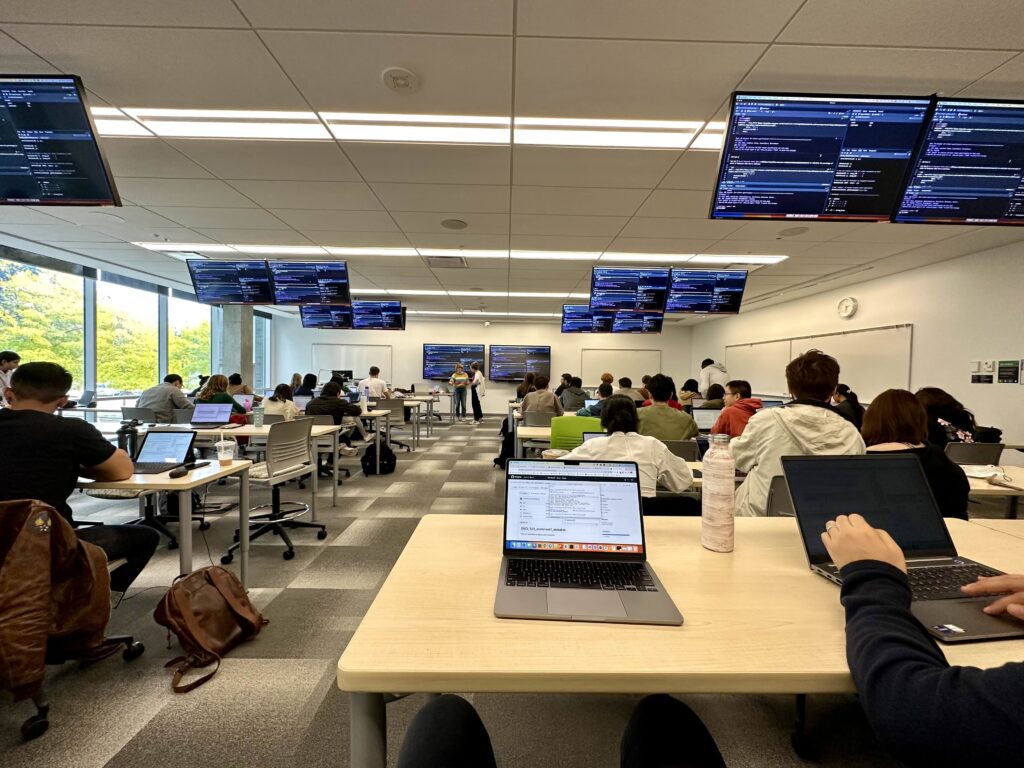Welcome back to my exploration of the data science frontier! Block 4 of my Master’s in Data Science has been a whirlwind of learning, coding, and ethical pondering, challenging me to integrate complex software development techniques with the rigorous ethical considerations necessary in today’s data-driven world. The courses from this Block have significantly enhanced my approach to solving complex problems, especially in the realms of tech product development and marketing. This improvement stems not only from the advanced technical skills I’ve acquired but also from a refined strategic mindset that is sensitive to both ethical implications and collaborative dynamics.
DSCI 524: Collaborative Software Development
Starting with DSCI 524, I delved deep into the realm of collaborative software development. This course wasn’t just about coding; it was about learning how to work effectively as part of a team. We learned to use tools like GitHub not just as a repository, but as a platform for collaboration, issue tracking, and continuous integration via GitHub Actions. The highlight for me was completing a project that incorporated all these elements, showcasing how packaged code can be robustly developed and maintained in a collaborative environment. This course echoed my earlier experiences with team projects but with a more structured and professional approach that is crucial for real-world data science.
DSCI 541: Data Science Ethics
DSCI 541 took us into the nuanced world of ethics in data science. Here, the focus shifted from how we code to how we think about the consequences of our coding. Through intense discussions, we tackled issues like disinformation spread by algorithms and privacy concerns in data handling. This course resonated deeply with me as it aligned with my personal values of respecting user privacy and striving for fairness in algorithmic decision-making. It was particularly enlightening to explore the ethical implications of seemingly neutral technologies and to learn frameworks for evaluating and mitigating potential harms.
DSCI 562: Regression II
Continuing what we learned in DSCI 561 in block 3, in DSCI 562, we expanded our statistical toolkit by exploring advanced regression techniques. Moving beyond Ordinary Least Squares, we examined models suited for different kinds of data, such as binary responses or censored observations. This course reinforced my analytical skills and provided new perspectives on modeling techniques that are essential when the standard models just don’t cut it. It was a continuation of my previous statistical learning but with a focus on more complex real-world scenarios where traditional methods are inadequate.
DSCI 572: Supervised Learning II
Finally, DSCI 572 brought me into the cutting-edge world of deep learning. Using Python and PyTorch, we built everything from simple neural networks to complex models like convolutional neural networks and even dabbled in the basics of generative adversarial networks. This course was a technical deep dive and pushed my coding skills to new heights. It was thrilling to apply these advanced techniques to real datasets and see the kind of results that were previously only possible in theory.
Looking Ahead
Each course in Block 4 has been a stepping stone towards becoming not just a competent data scientist but a conscientious one. Whether it’s coding collaboratively, debating ethics, refining regression models, or training deep learning algorithms, the journey has been enriching and transformative.
As I look to the future, I am excited to bring these new skills and insights into my professional work. The blend of technical prowess and ethical awareness I’ve cultivated will be crucial as I tackle more complex data science challenges. My blog, as always, will continue to be a space where I share these experiences and connect with others who are passionate about the intersection of technology, ethics, and data. The knowledge and skills gained in this Block have transformed my approach to problem-solving in tech product development and marketing. By integrating sophisticated software development practices with a deep understanding of ethical data usage and advanced analytical techniques, I can now devise solutions that are not only technically sound but also ethically responsible and strategically impactful. This holistic approach is vital in today’s fast-paced and increasingly complex tech landscape, where the quality of solutions we provide directly influences business success and consumer satisfaction.
Thank you for joining me on this journey, and stay tuned for more insights and adventures in data science!





